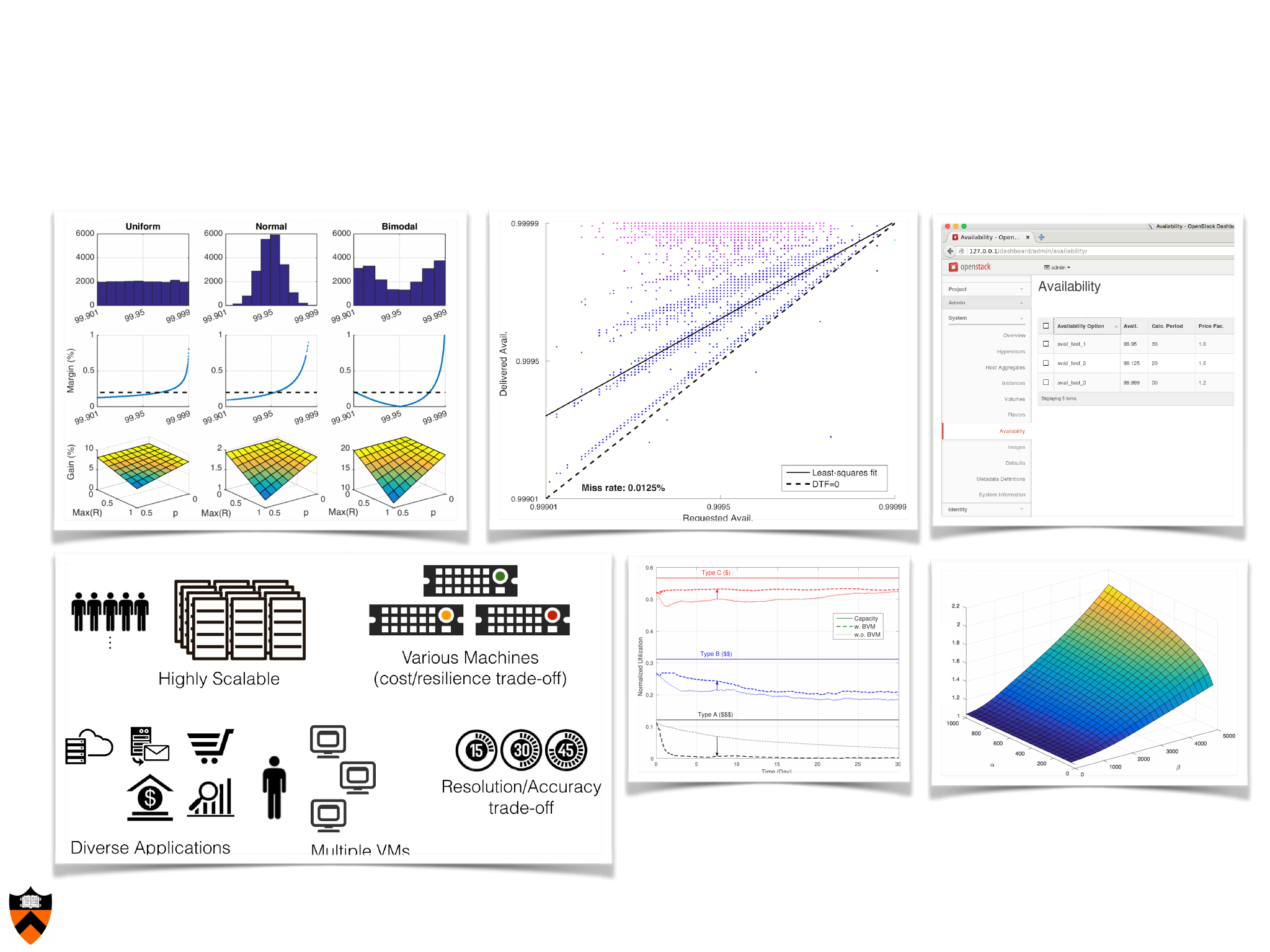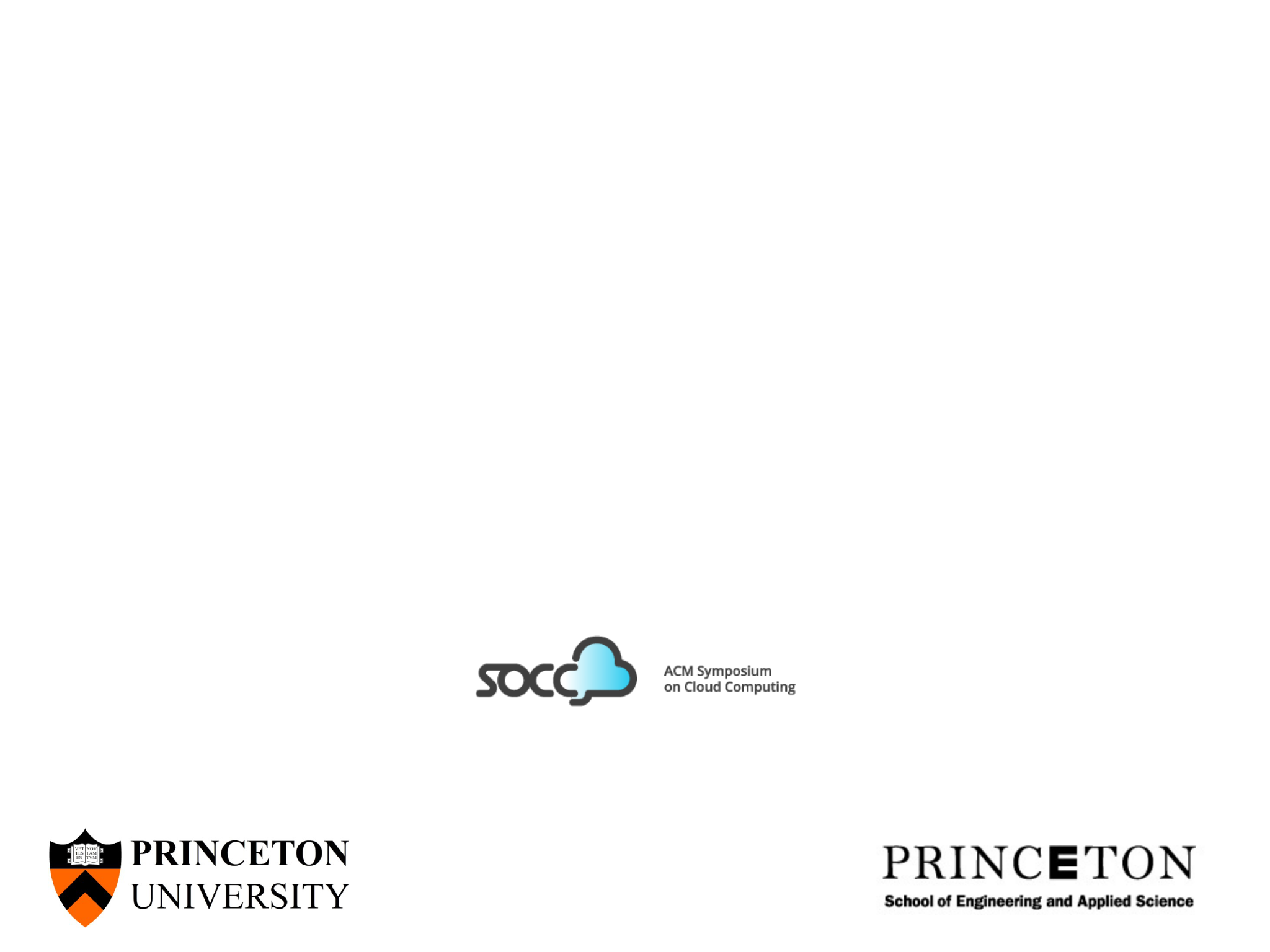
Availability Knob
Flexible User-Defined Availability in the Cloud
Mohammad'Shahrad!and!David!Wentzlaff
October 5, 2016

IaaS Providers and
Availability Guarantees
2
Fixed 99.95% availability!
One thing in common:

What’s wrong with fixed availability?
3
Cloud customers:
•
Various downtime demands
•
Different WTP*
Cloud infrastructures:
•
Heterogeneous HW & !
SW reliability
* WTP= Willingness to Pay
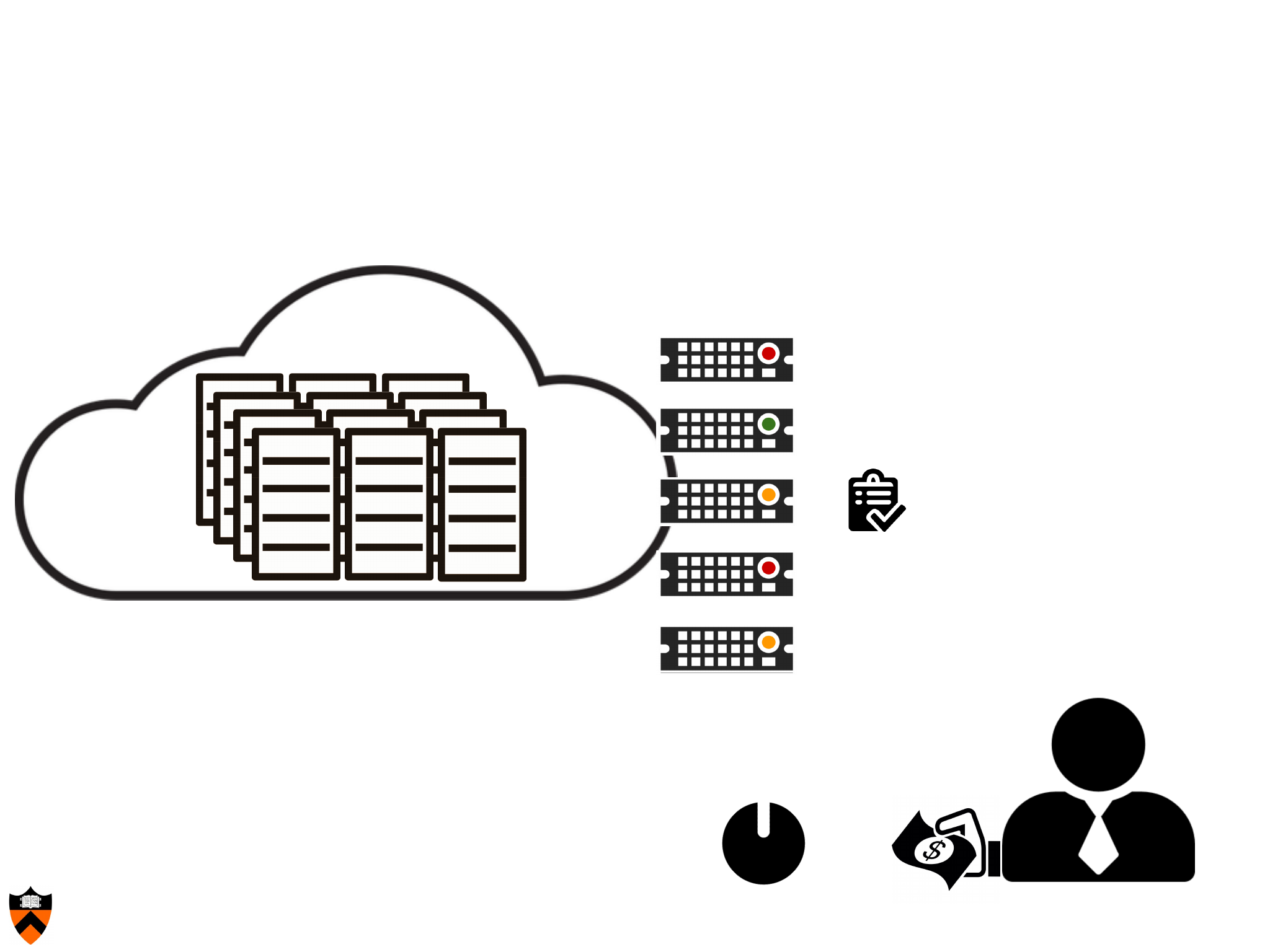
The Availability Knob (AK)
Let’s have clients ask for
their desired availability
and be charged
correspondingly.
4
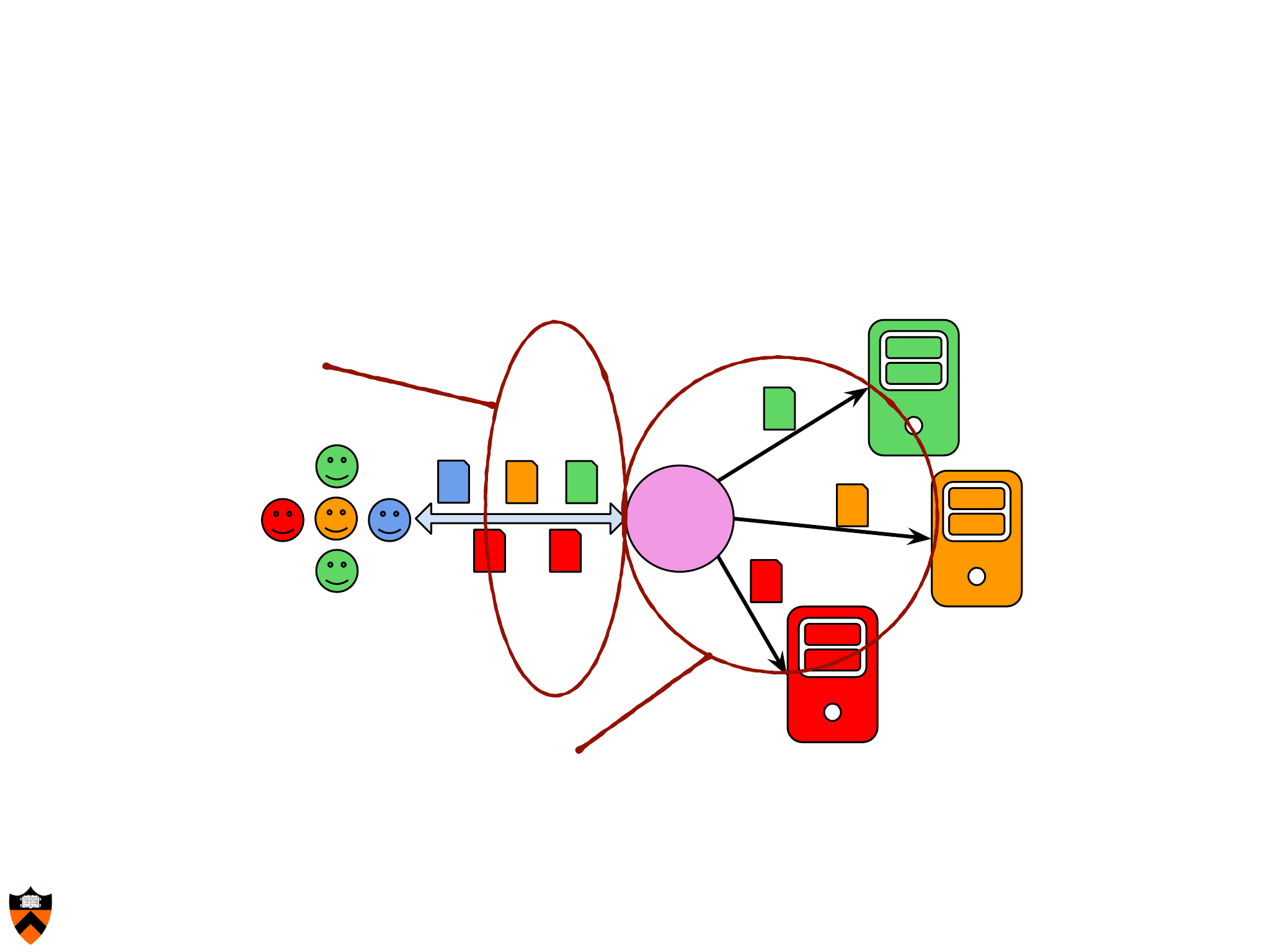
Cloud
Scheduler
Cloud
Scheduler
Cloud
Scheduler
Cloud
Scheduler
Cloud
Scheduler
Cloud
Scheduler
What should change in
cloud to support AK?
5
Cloud management
•
Gathering failure data and build failure stats
•
Avail-aware scheduling
Cloud
Scheduler
Cloud
Scheduler
Cloud
Scheduler
Service Level
Agreements
(SLAs)
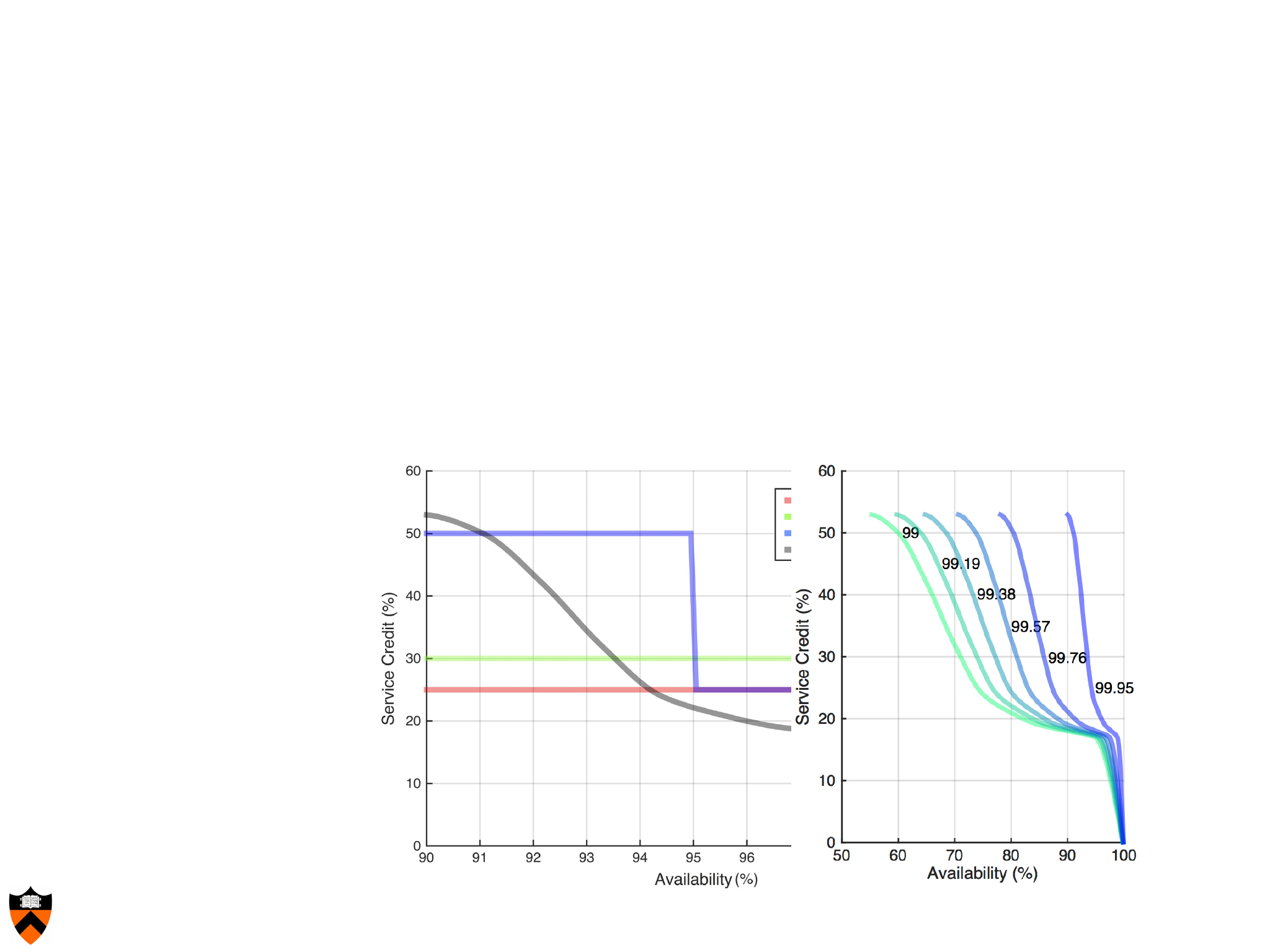
How do SLAs look with AK?
1. Desired Avail. / Period!
(e.g. 99.8% / 7 days)
3. Variable service credit (penalty)
6
2. Availability price scale!
e.g. (99.95%,1.00), (99.9%,0.95)
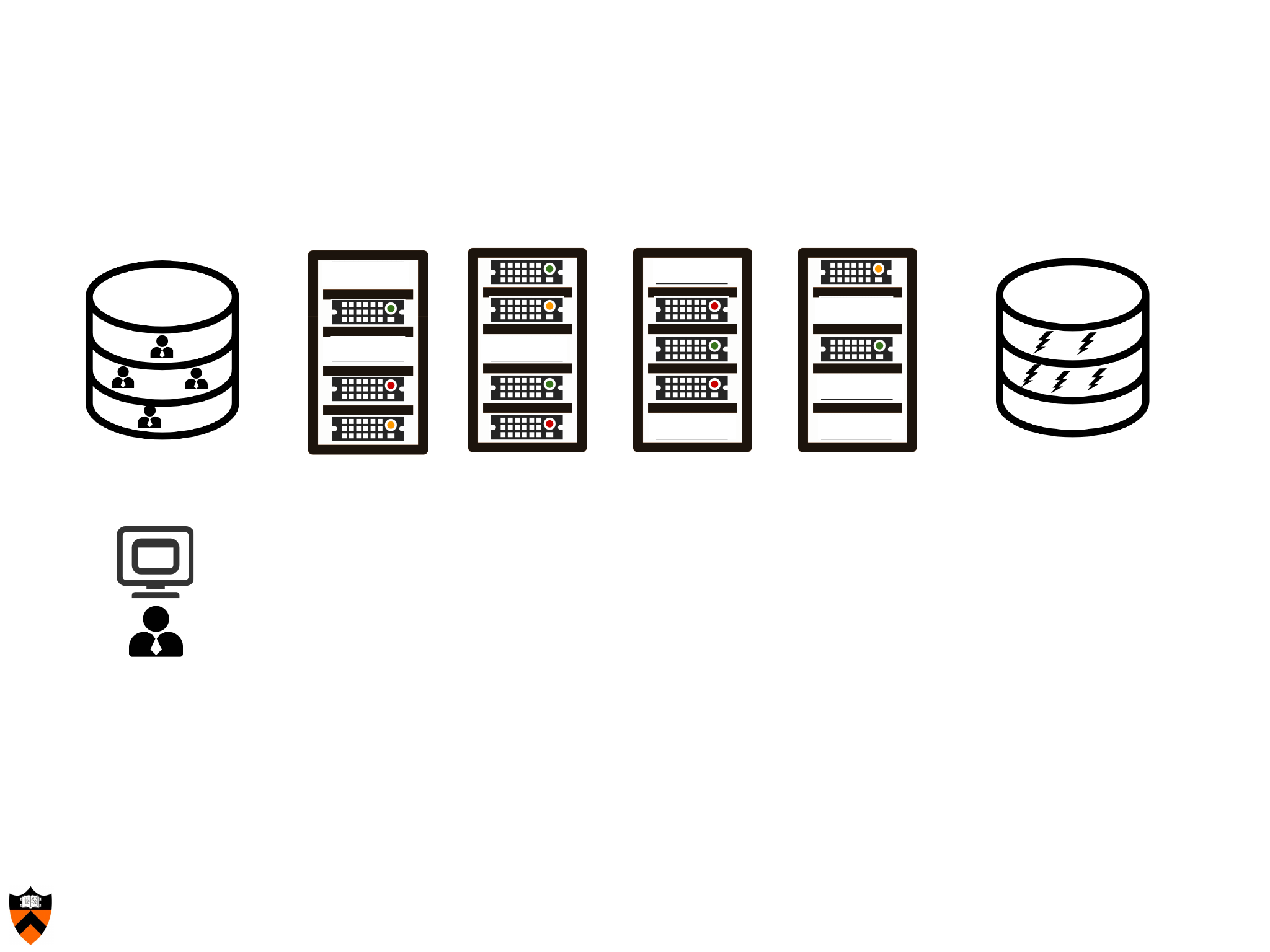
The AK Scheduler
7
1. Check for available resources
2. Find the cheapest resource
considering possible penalties using:
User’s experienced vs. requested DT
Expected PM time-to-next-failure
VM size and expected DT** length in case of failure
PM* Failure DB
Service Record DB
* PM= Physical Machine
** DT= Downtime

AK-Specific Scheduler Features
8
Extra Knowledge on user availability demand enables new
scheduling features:
Benign VM* Migration (BVM)
Deliberate Downtimes (DDT)
* VM= Virtual Machine
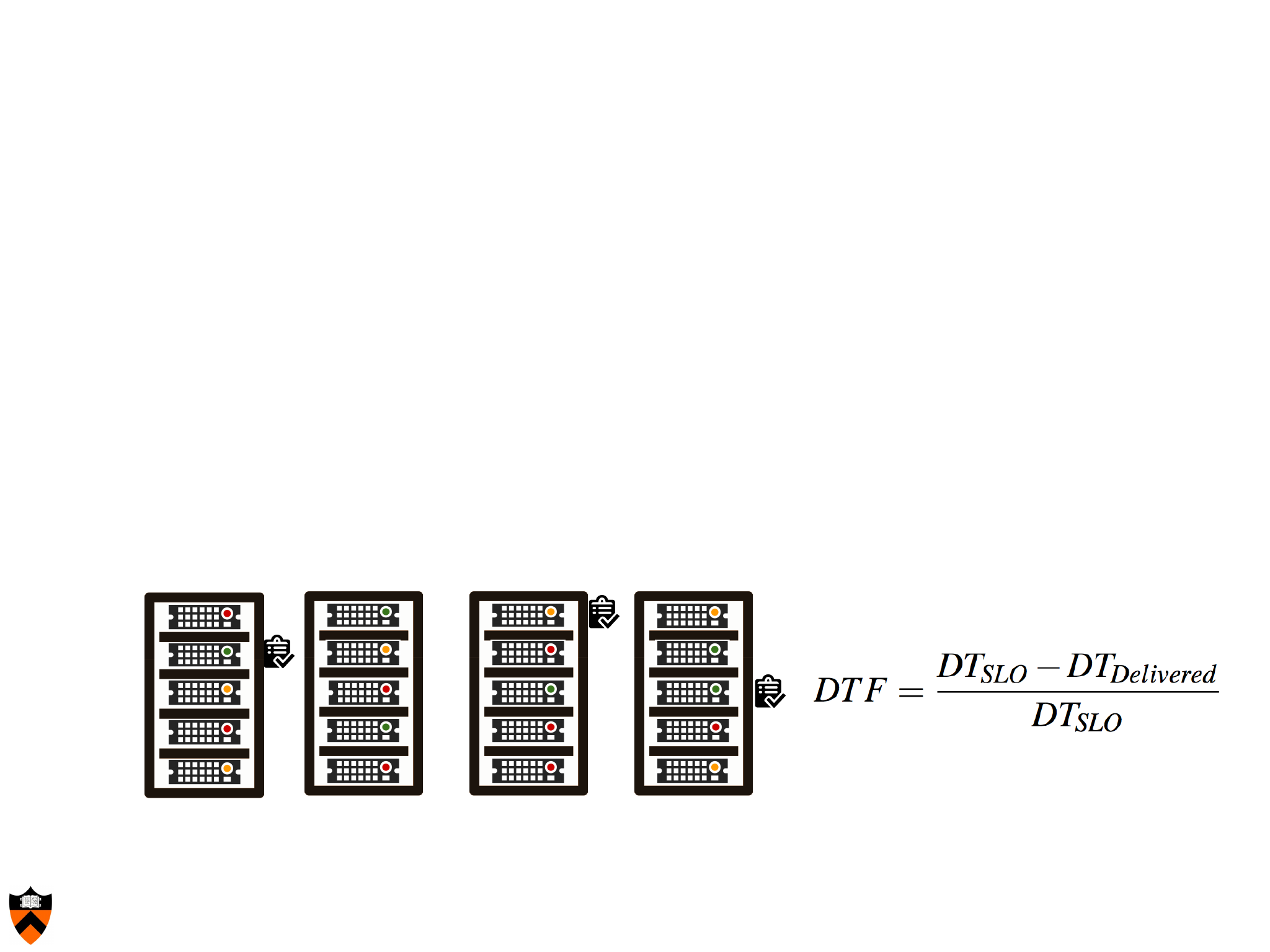
Benign VM Migration (BVM)
•
VMs can be over-served
•
Low failure rate
•
Assignment to HR resources (resource shortfall)
9
Periodic migration of over-served VMs to cheaper resources
* DTF= Downtime Fulfillment
** SLO= Service Level Objective

Deliberate Downtimes (DDT)
•
Providers can deliberately fail VMs near the end of period.
10
•
Motivations:
•
Building market incentives
•
Lowering energy consumption
•
Bidding redeemed resources
•
etc.
Requested Avail.
Delivered Avail.
Safety
Margin

Economics of AK
How to set prices to ensure mutual benefit?
How does AK make money?
11

Incentive Compatibility
Clients may:
- run buggy VMs
- cause deliberate DTs**.
Providers can:
- neglect meeting SLOs*
* SLO= Service Level Objective ** DT = Downtime
Pricing for incentive compatibility
12
Using game theory to ensure:
-
Providers maximize profit margin by not violating SLOs
-
Clients pay less by asking their true demands

How does AK make money?
13
1. Adapting service to real demand:!
Higher market efficiency through supply chain flexibility
2. More efficient resource utilization:!
Lowering OpEx, Extra Bidding/Sprinting
3. Variable profit margins:!
Compensates risks & supply/demand disparity
~10% Cost Reduction
~20% Profit Increase

AK Deployment
•
No hardware change required
•
Low technology adoption cost
14
•
Existing fixed availability a subset of AK
•
Can be offered as an optional feature
•
Easy shift to the new model
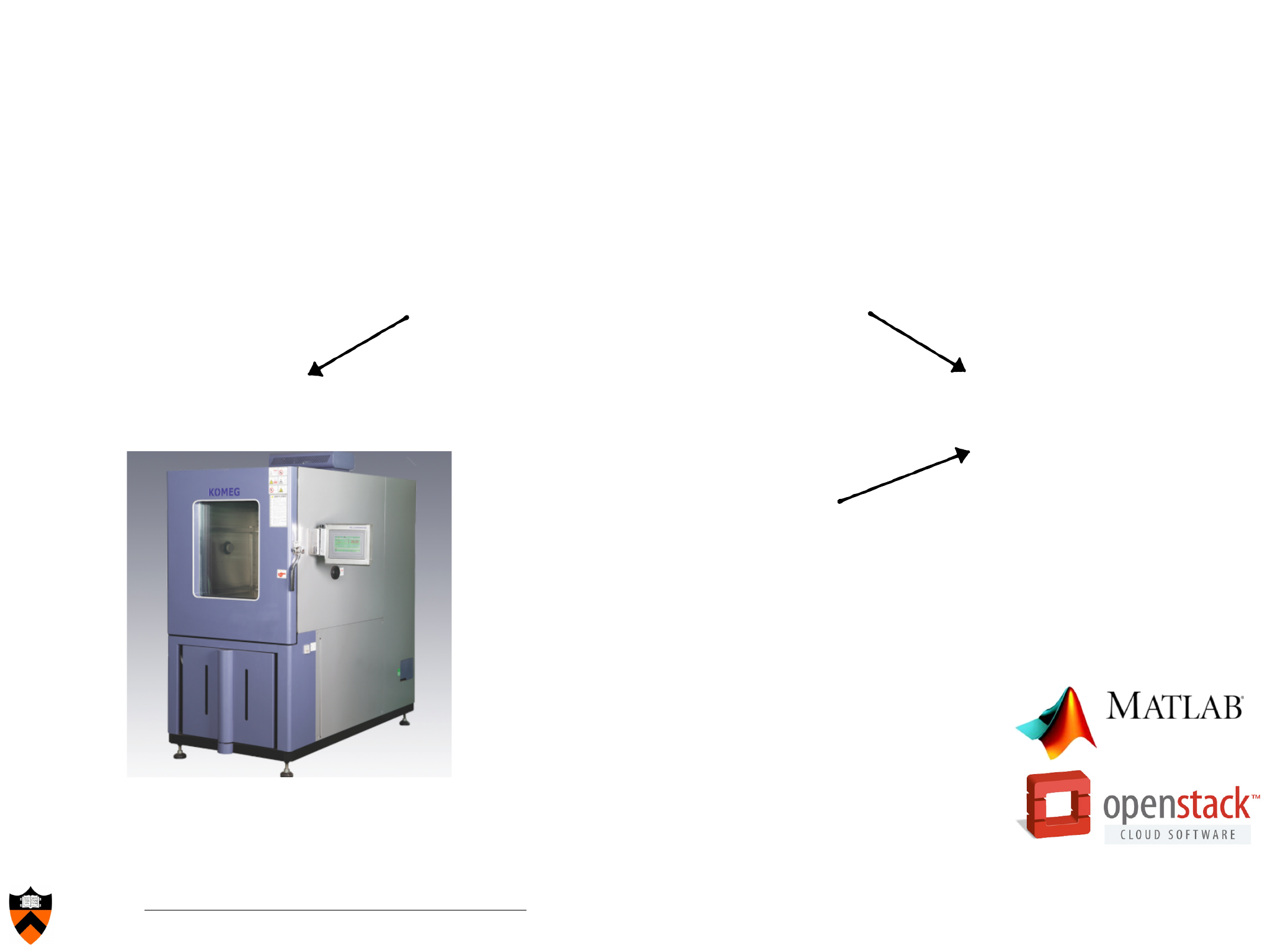
How to evaluate AK?
Infrequency of Failures
Accelerated testing
Simulations
15
Data center scale
1. Stochastic simulations in MATLAB
2. Prototype implementation with OpenStack
[1] http://gdkomeg.en.made-in-china.com/productimage
[1]
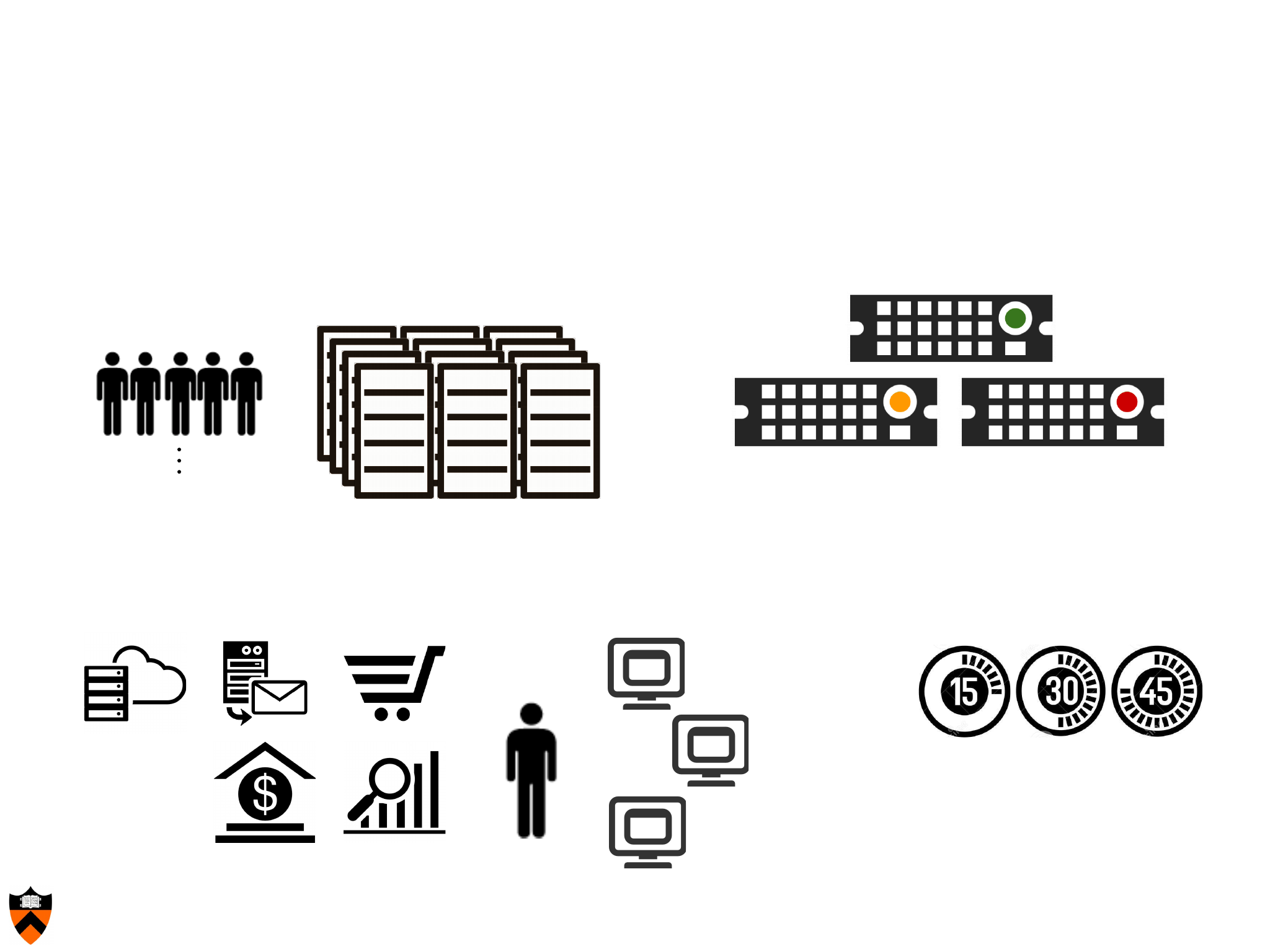
AKSim: Stochastic Cloud Simulator
16
Scalability
Resolution/Accuracy
trade-off
Diverse Applications
Multiple VMs
Various Machine Types
(cost/resilience trade-off)
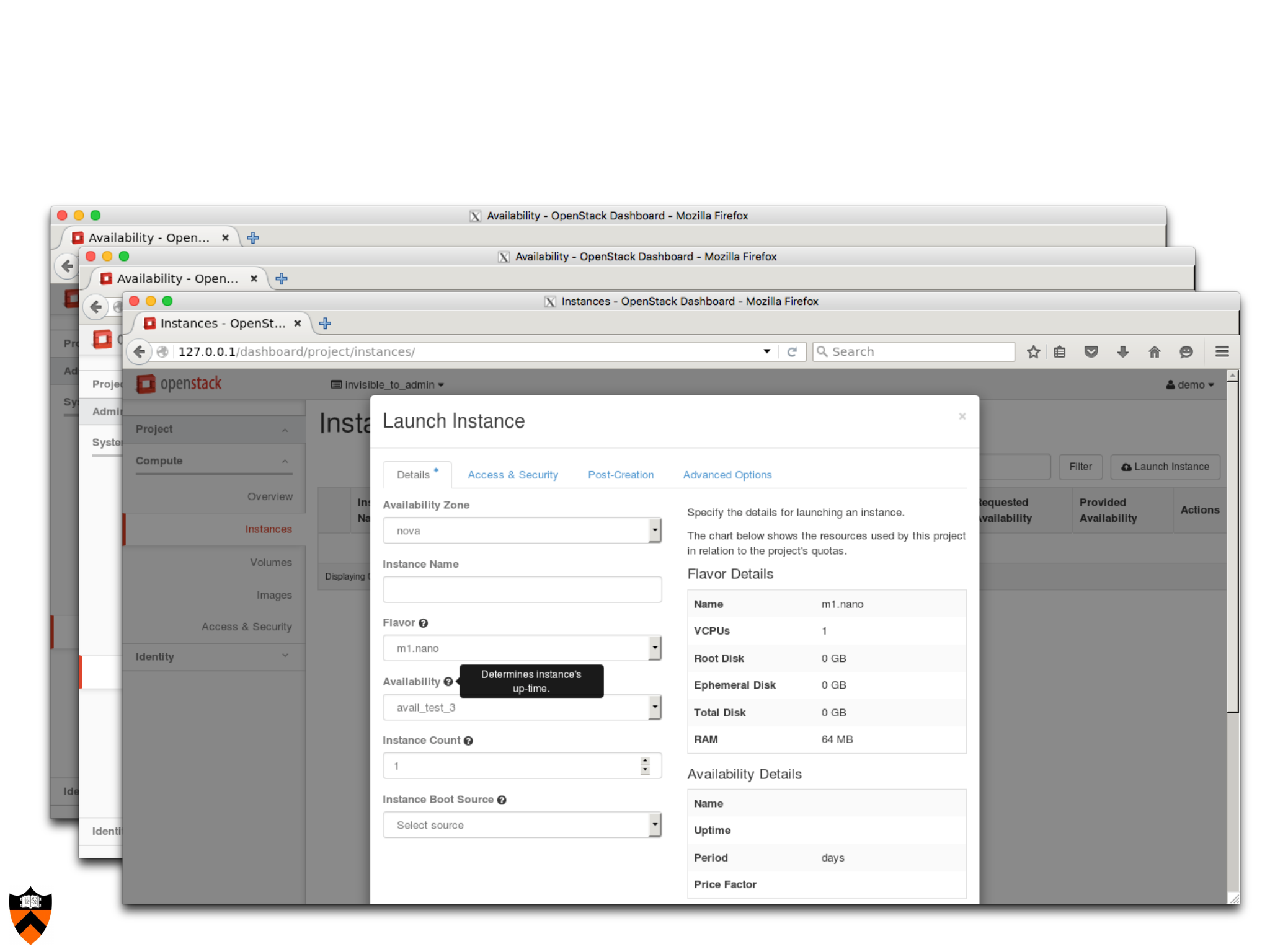
OpenStack AK Prototype
17
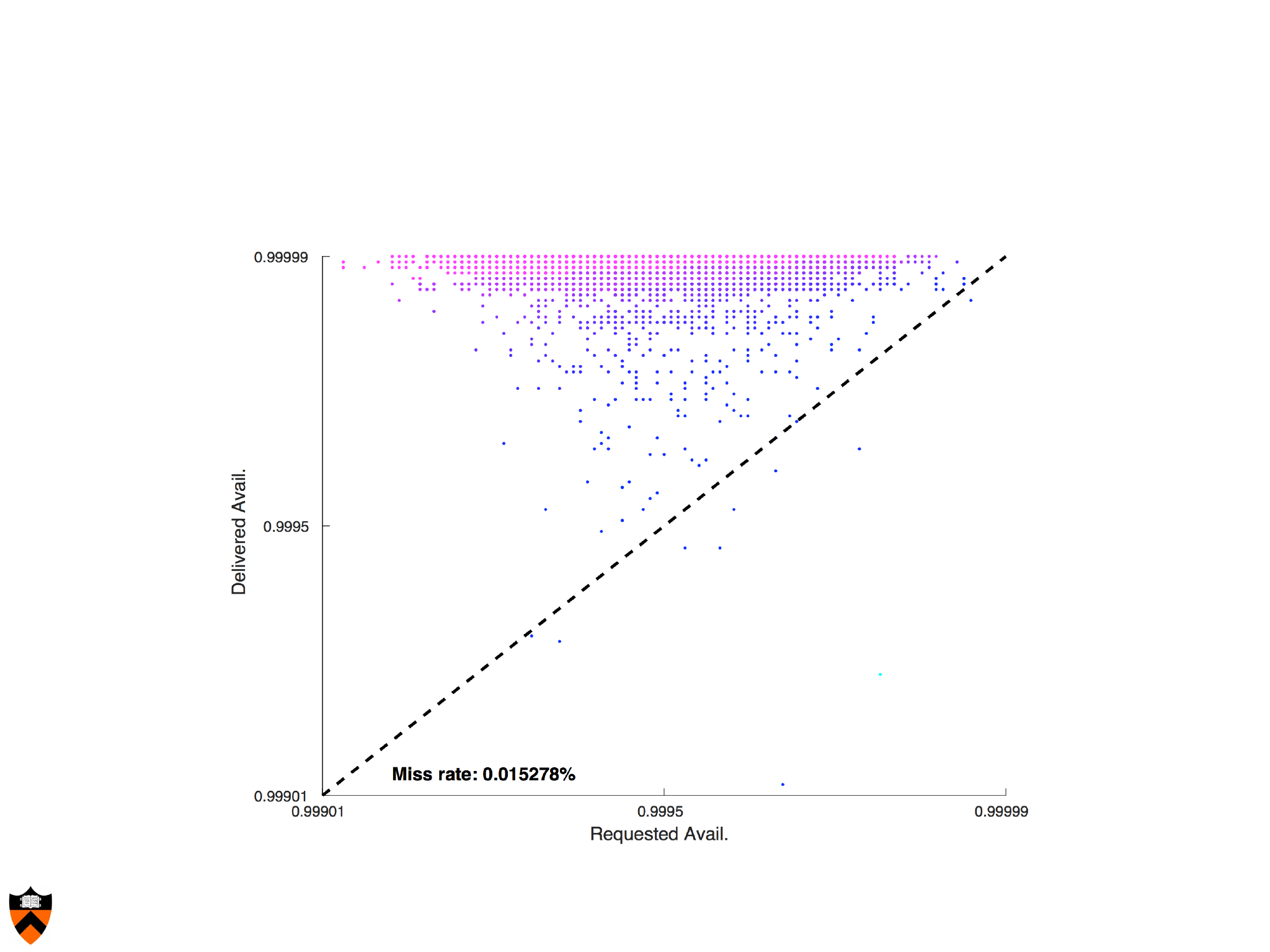
Availability-aware Scheduler
18
1000 machines, 12000 users, Normal demand dist., 6 month
BVM every 1hr for top 10% of over-served clients
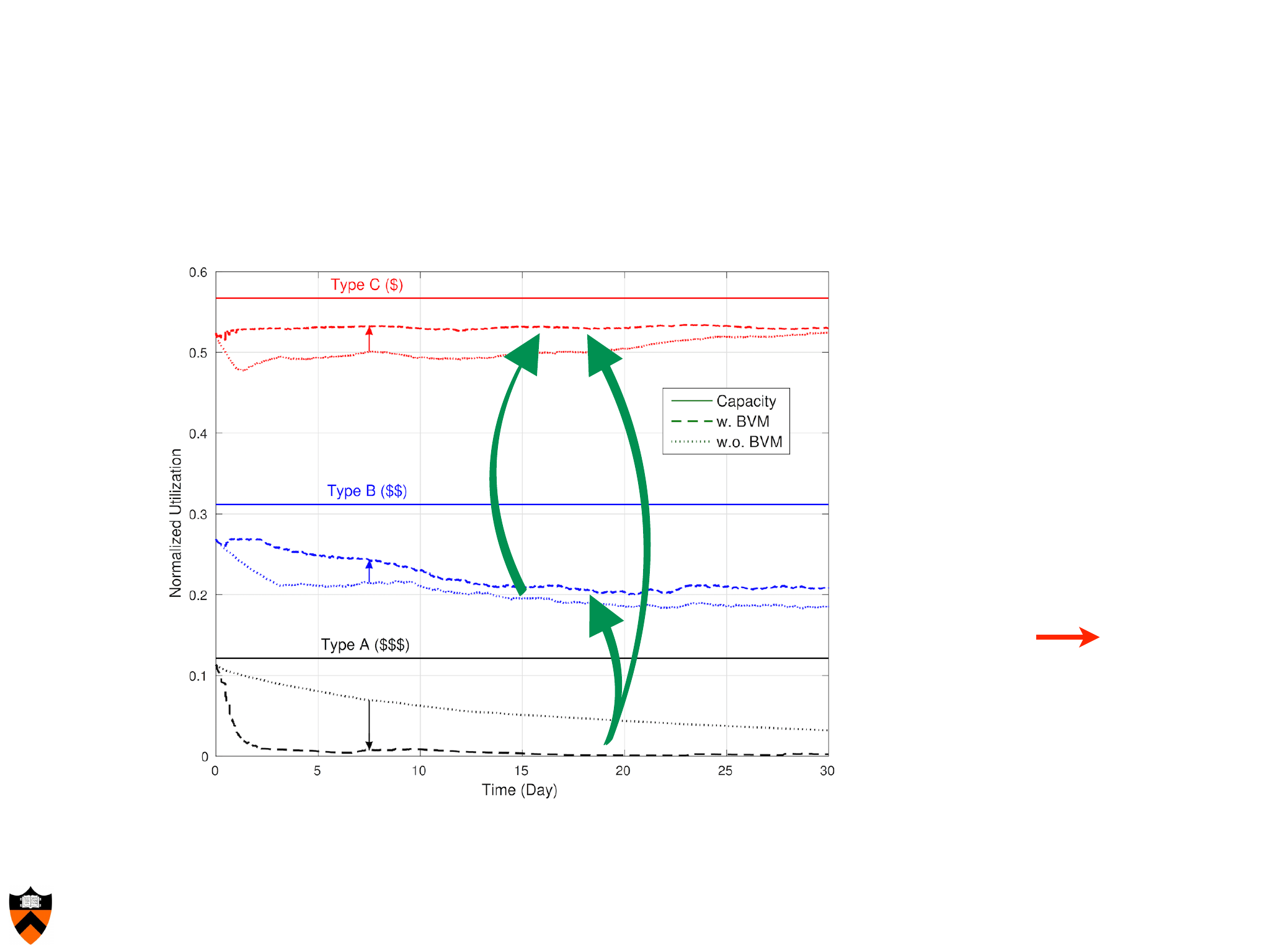
Benign VM Migration (BVM)
19
~7%
Cost Reduction
Increased Miss Rate
0.19% 0.34%
1000 machines, 12000 users, Uniform demand dist. [3 nines,5 nines], 30 days
BVM every 1hr for top 10% of over-served clients
Benefits of BVM depend on machine type blend
and data-center utilization.
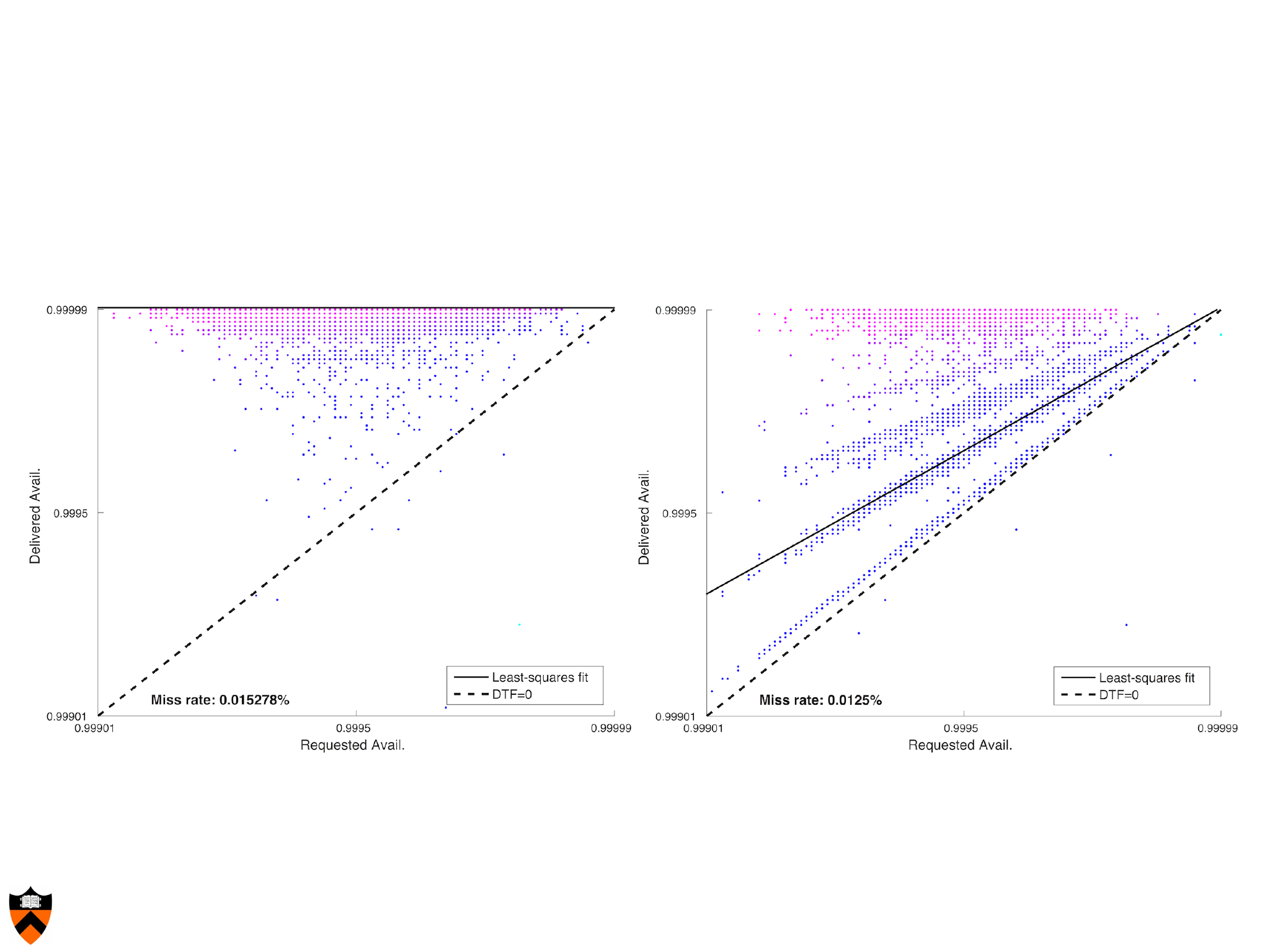
Deliberate Downtimes (DDT)
20
1000 machines, 12000 users, Normal demand dist. [3 nines,5 nines], 6 month
BVM every 1hr for top 10% of over-served clients
Benefits of DDT depend on demand distribution.
DDT
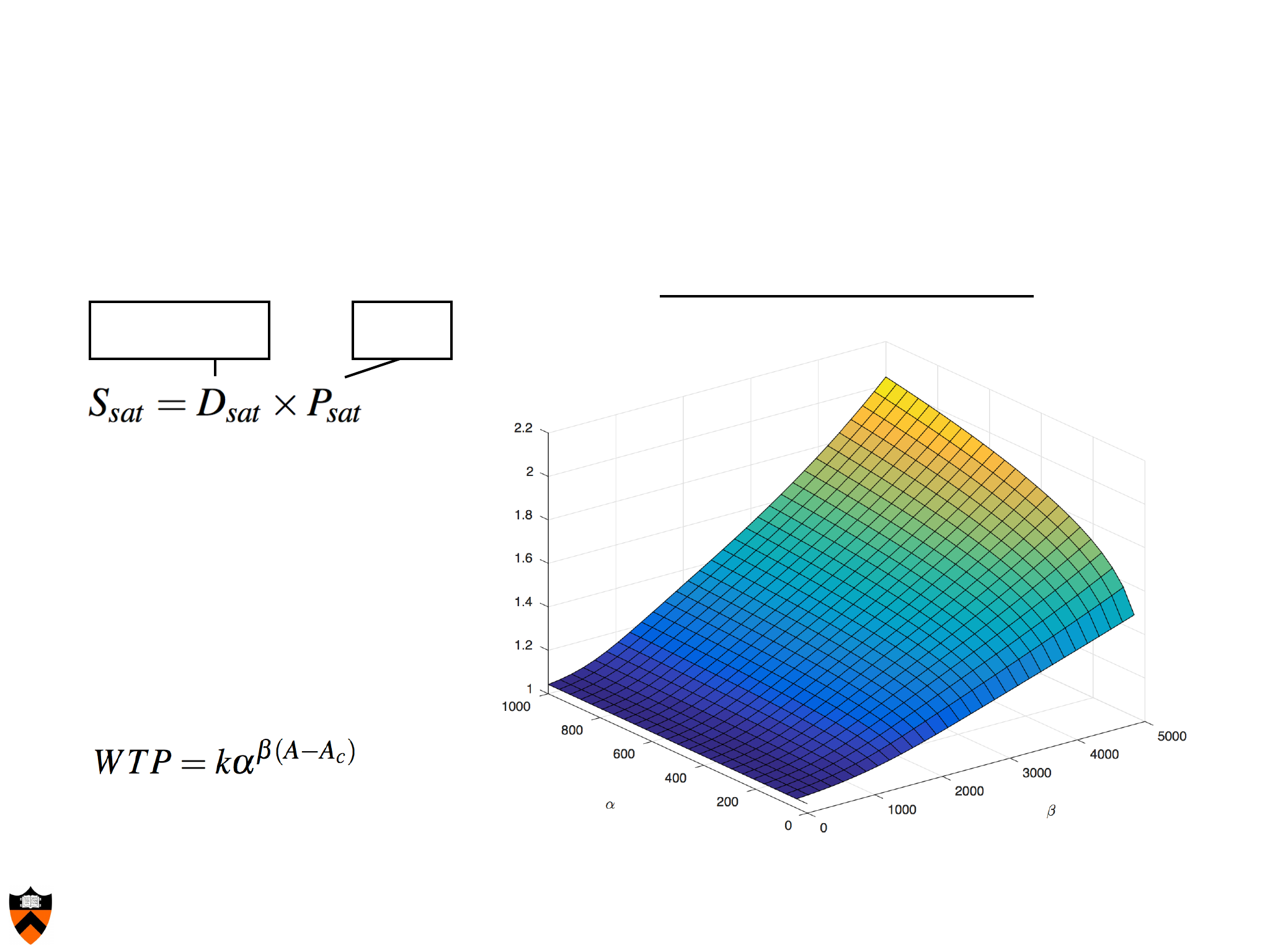
Improved Service Satisfaction
21
Downtime
Price
* WTP= Willingness to Pay
AK Satisfaction
Fixed-avail Satisfaction

Things to Remember
•
Supply chain flexibility -> market efficiency
22
•
Knowing user demand can enable new techniques
•
Game theory to ensure mutual economic incentive
•
Leveraging reliability/cost trade-offs

Back-up Slides
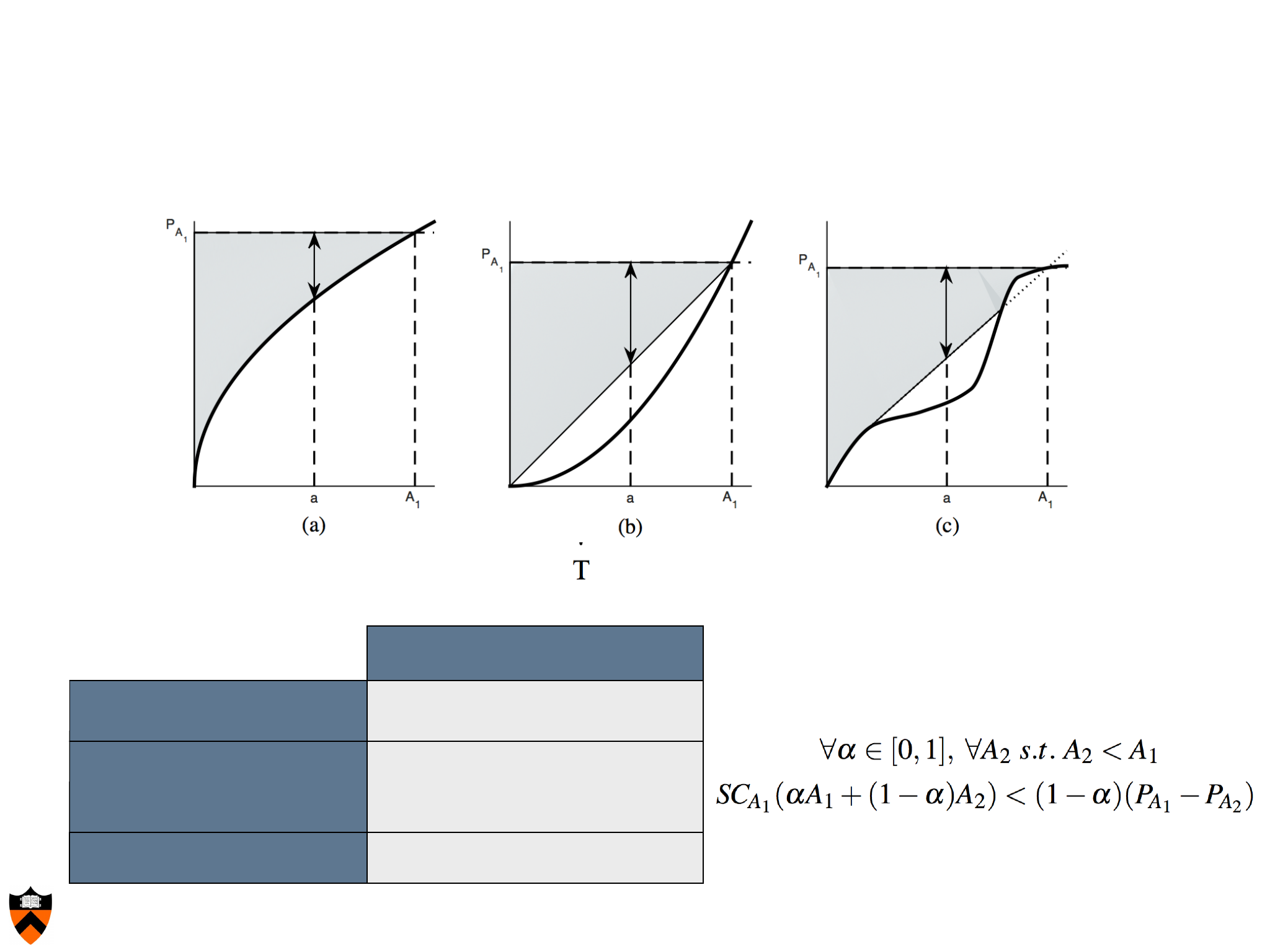
What if client’s demand changed?
Client must have the incentive to change his plan.
Price
No change; Fixed A
1
P
A
1
deliberate failures by
user to earn cash back
P
A
1
− SC
A
1
(αA
1
+(1−α)A
2
)
Change to A
2
αP
A
1
+(1−α)P
A
2
Plan update condition:
Upper bound of SC given arbitrary P
25
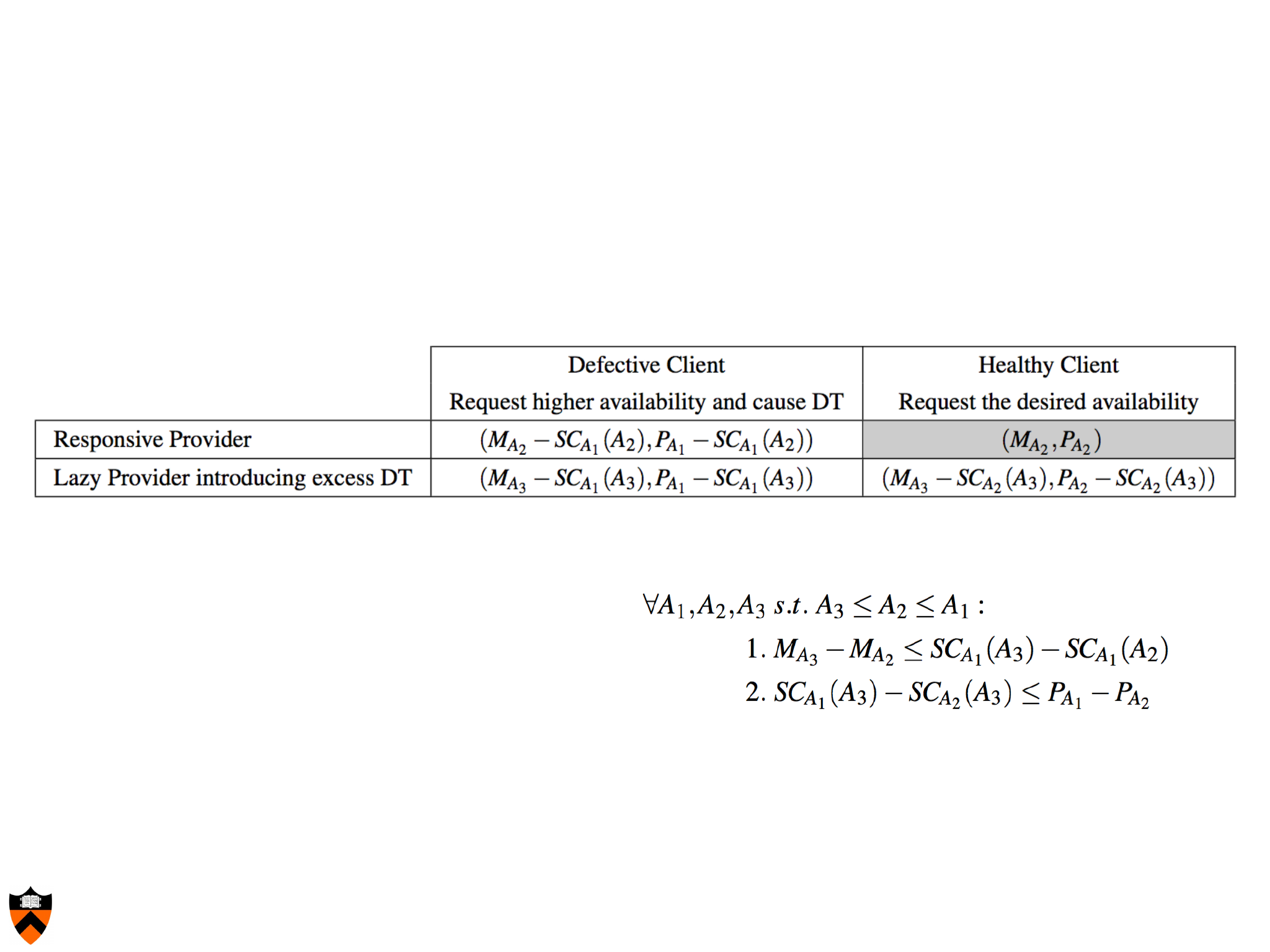
Nash Equilibrium
26
Nash equilibrium:
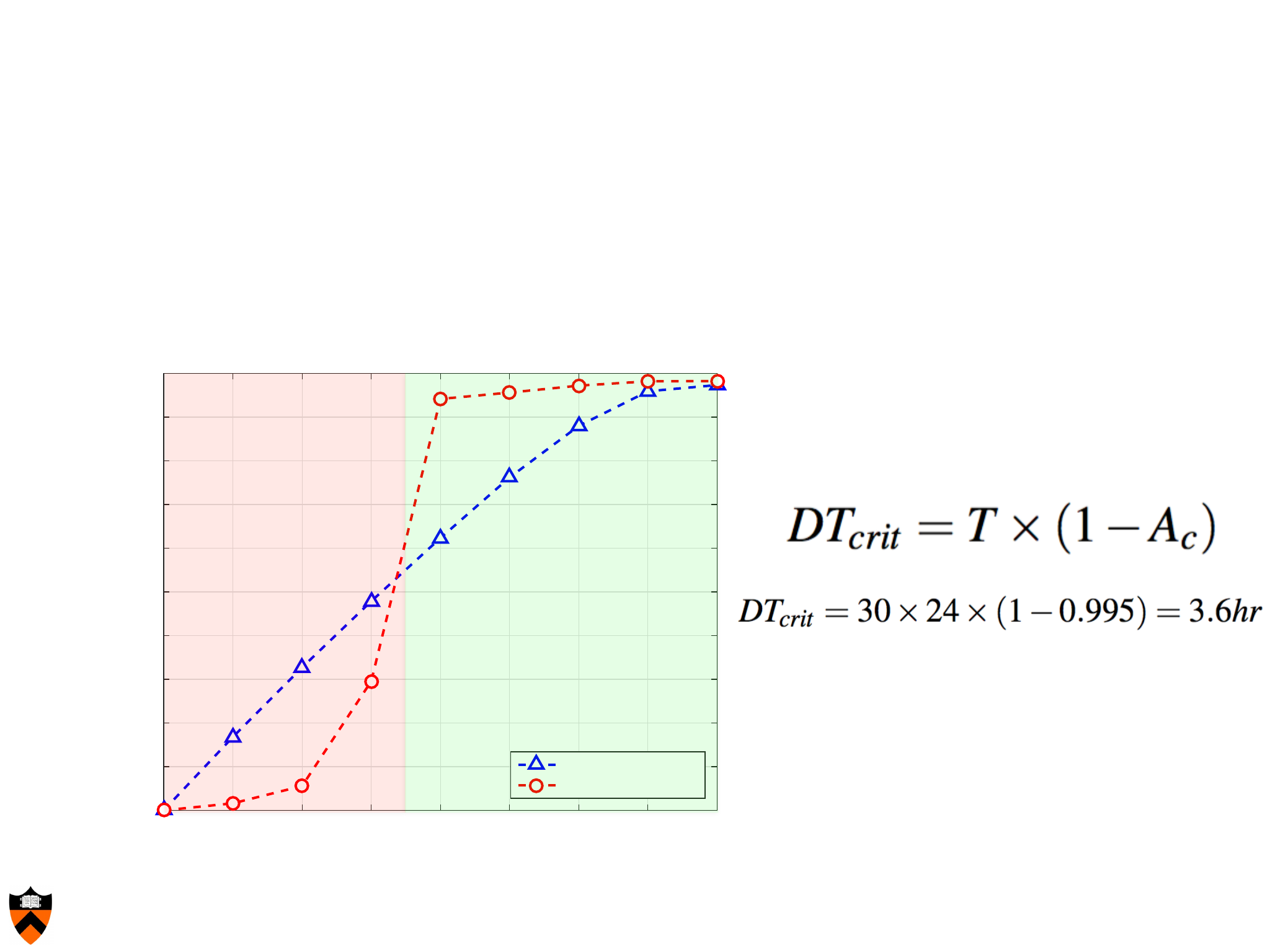
Catastrophic Failure & AK
27
•
When the whole cloud service is down.
012345678
Catastrophic Event Length (Hour)
0
10
20
30
40
50
60
70
80
90
100
Missed SLOs (%)
AK (Uniform Dist)
Fixed Availability

Why OpenStack
•
VM migration (unlike Eucalyptus)
•
Diverse hypervisor support (KVM)
•
AWS Compatibility
•
Big community (good support)
•
Real world adoption in public/private/hybrid clouds
28
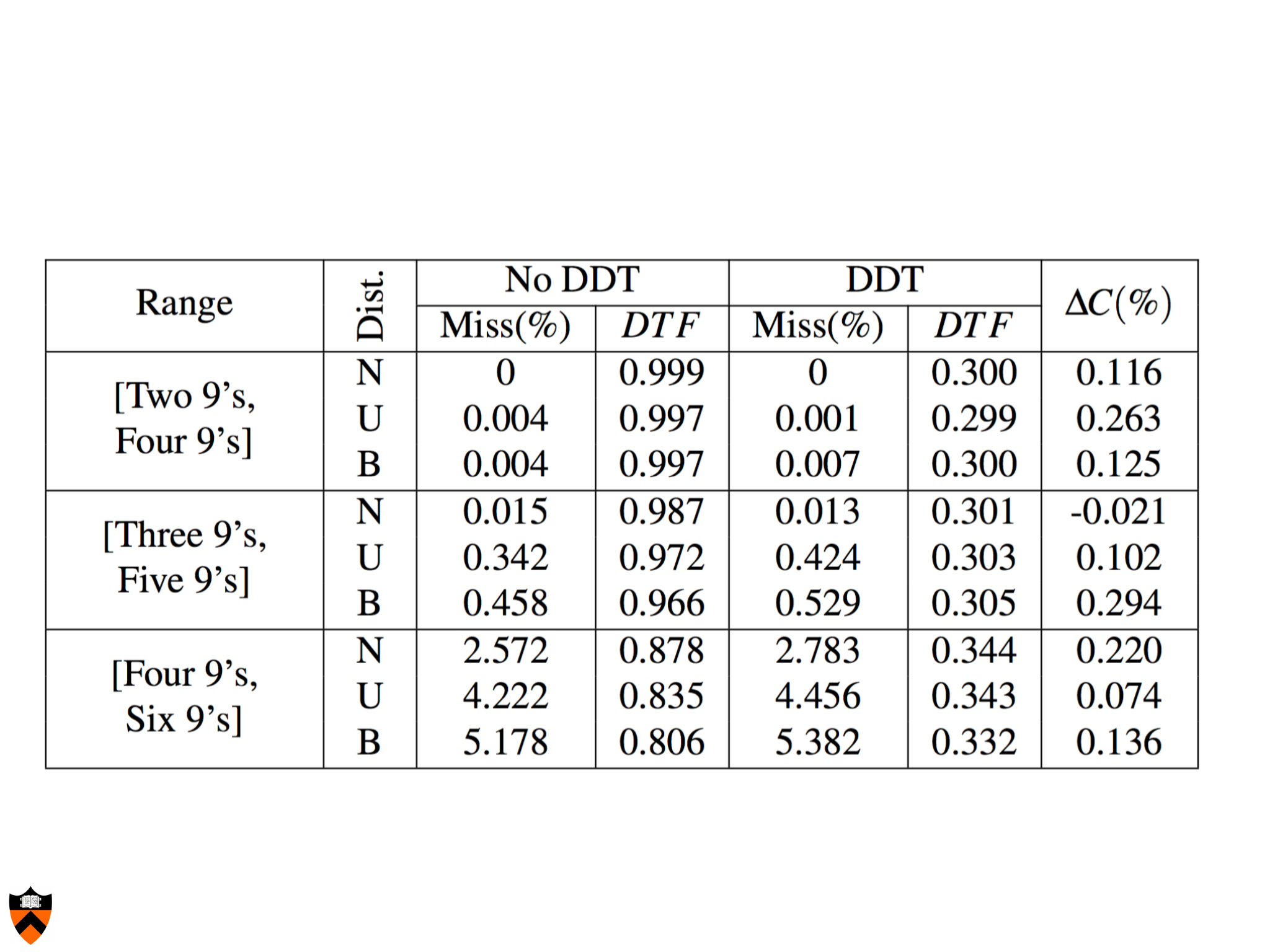
Some More Results
29
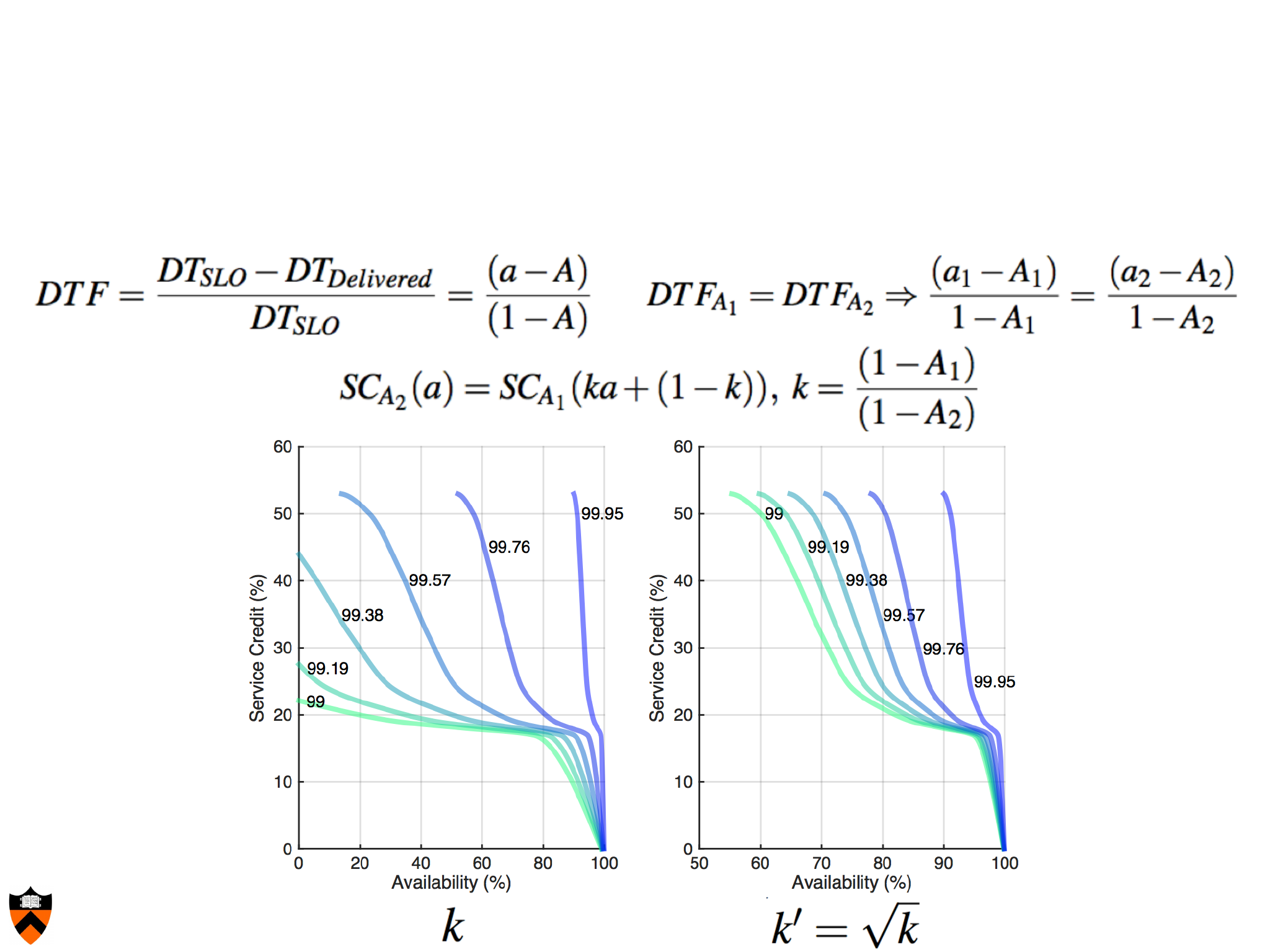
Service Credit Reshaping
30

Availability Monitoring Tools
•
There are some performance monitoring tools AK
can use to gather avail data:
•
Nagios (used in AWS)
•
Zabbix
•
Ganglia
31
